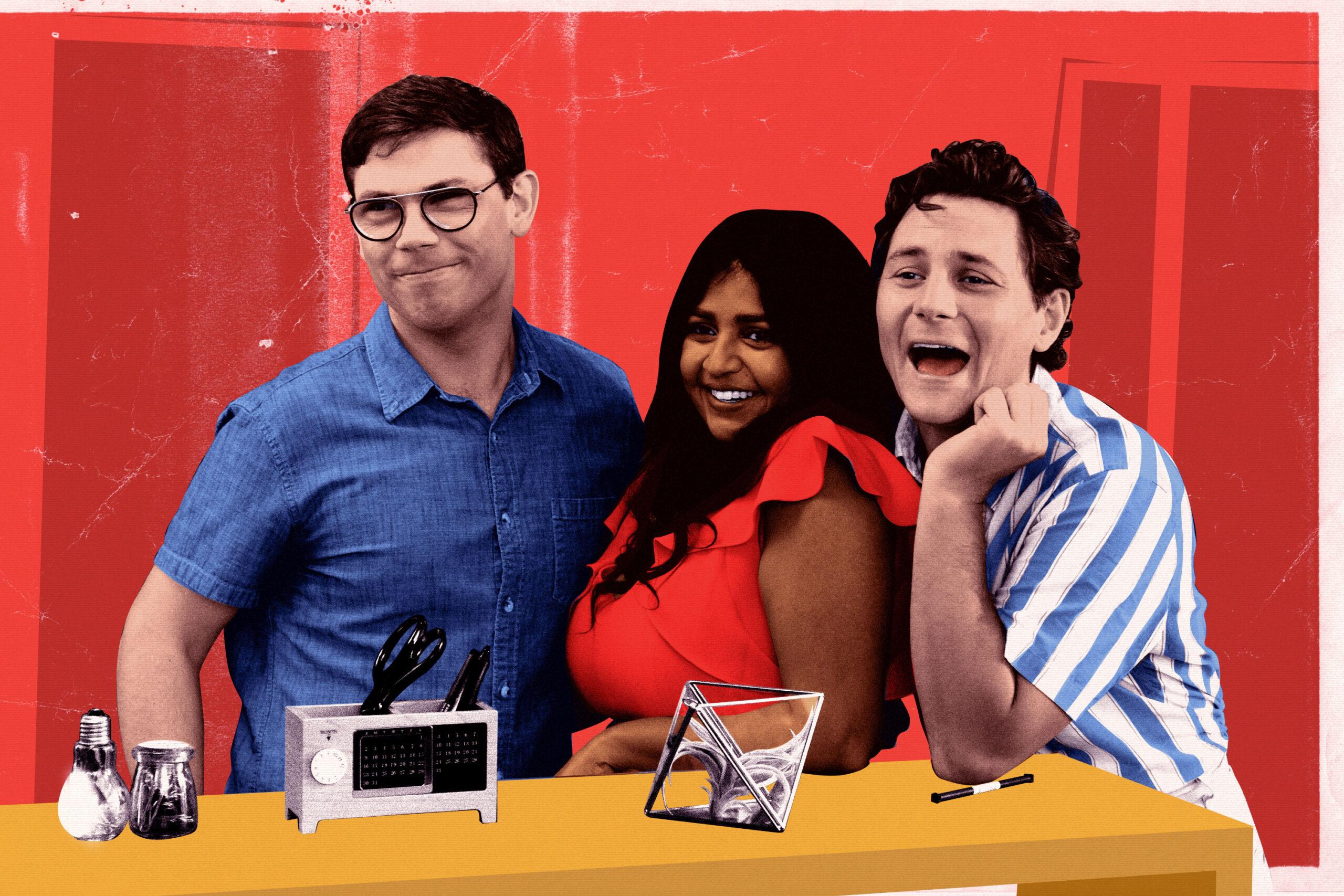
Once upon a time, “web series” used to be the underdog. Just a few years ago, internet TV was a scrappier, more unruly place, a Wild West for budding auteurs like Issa Rae or the Broad City girls to bootstrap their way into mainstream success. Back then, “mainstream” was still defined as linear networks like Comedy Central and HBO, in contrast with the relative backwater of online platforms. Web series entailed a lack of institutional backing, for better and for worse.
Now, of course, entertainment’s balance of power has shifted. Hosting TV shows on the internet is no longer a sign of independence, because the internet, too, now has its own set of native institutions. Media is just a microcosm of the medium-wide concentration of power into a few corporate hands. Giants like Google and Facebook govern how we navigate and interact; others, like Netflix, increasingly dictate what we watch. Some presences, like Apple and Amazon, are expanding their reach from established bases in areas like technology and e-commerce. A field for upstarts this is decidedly not; these days, “web series” is technically as accurate a descriptor for Orange Is the New Black as it once was for Awkward Black Girl.
Yet every once in a while, even a megalith like Netflix finds a way to return to its roots. Special, the new eight-episode series from writer and performer Ryan O’Connell, looks and feels like a web series of the old school. A semi-autobiographical account of life in Los Angeles as a gay man with cerebral palsy, Special is a self-made vehicle for its architect and star. The sets are bare bones, the budget not particularly lavish. And at just 12 to 17 minutes, the run times are positively skimpy. Viewers can run through the entire season in a lazy weekend afternoon, which is precisely what this writer did.
Special’s installments are bite-sized even by the standards of conventional television, packaged as it is in 30- or 60-minute blocks. But they’re even more remarkable when held up against the usual tendencies of streaming. In the half-decade or so since a tsunami of tech money reconfigured the economics of making digital-native series, the internet’s lack of constraints like time slots have been taken as a license to expand. With money no longer an issue, at least until Netflix’s debt load starts to catch up to it, streaming services have seized the opportunity to sprawl past previous limits on episode lengths. The recent season premiere of The OA topped 65 minutes. Many chapters of Maniac spread past 40. And on CBS All Access, the debut of Jordan Peele’s rebooted Twilight Zone extended to nearly an hour.
Such maximalism takes its toll on viewers’ attention spans, so, in recent years, platforms like Netflix have started to offer antidotes to their own indulgences. First, the service rolled out its Comedy Lineup, a cluster of 15-minute stand-up specials that called back to the art form’s roots in live performance and pushed the film special forward by turning it into an abbreviated, bingeable sample platter. The history of television is filled with providers like HBO using comedy as a testing ground for other genres, so it’s not surprising that Netflix has started to export this approach.
Earlier this year, the animated anthology series Love, Death & Robots spun science fiction parables in six- to 17-minute increments. Created by Deadpool’s Tim Miller and executive produced by David Fincher, Love, Death skips freely between Blade Runner-style dystopia and silly parables of sentient yogurt. None last longer than a Saturday morning cartoon segment. Nor is Netflix’s experiment with compressed episodes confined to scripted fare. One of the more delightful discoveries on the site this year is Flavorful Origins, the Chinese-language docuseries dissecting the regional cuisine of Chaoshan, which is little known to Westerners. Each clip is a roughly 12-minute exploration of a single ingredient, from preserved radish to galangal. The effect is that of an efficient YouTube tutorial, touring the audience through an unfamiliar subject one entry point at a time.
But while Love, Death and Flavorful Origins are more experimental, Special feels like a return to streaming TV’s earliest roots. The structure is a familiar, Girls-influenced kind of bildungsroman, complete with an unpaid internship at an exploitative media company. Like Hulu’s recent Shrill, Special takes place in a sort of time warp in order to reflect its inspiration’s experience in the years before they got their own TV show; while Shrill borrows from Lindy West’s mid-aughts time at Seattle-based alt-weekly The Stranger, Special cribs from O’Connell’s stint at sites like Thought Catalog, which encouraged their writers to mine their personal trauma for clicks. Recognizable as its influences may be, however, Special keeps one foot in the DIY world that gave rise to it. The stakes of individual episodes—throwing a housewarming; attending an office party—reflect the abbreviated time in which they play out. One episode guest stars Brian Jordan Alvarez of the delightful 2016 web series The Gay and Wondrous Life of Caleb Gallo, as a sex worker Ryan hires to relieve him of his virginity.
Later this month, Netflix will release Bonding, another short-form comedy following millennials in a coastal metropolis, with BDSM sexuality replacing disability as the central theme. Like Special, Bonding’s relatively lighter lift allows creative control to be especially concentrated, even by the standards of an auteur-heavy time in TV history. Special is directed by Anna Dokoza, but O’Connell retains the majority of writing credits in addition to the lead role; Bonding’s Rightor Doyle writes, directs, and executive produces the entire season. Clustered together, these series make up a mini-trend within Netflix’s otherwise overwhelming sea of content, and a promising counterpoint to some of the tendencies encouraged by streaming’s lack of limits. What it means to make television outside the parameters of, well, television has changed a great deal over the years. It’s refreshing to throw back, and therefore scale down.